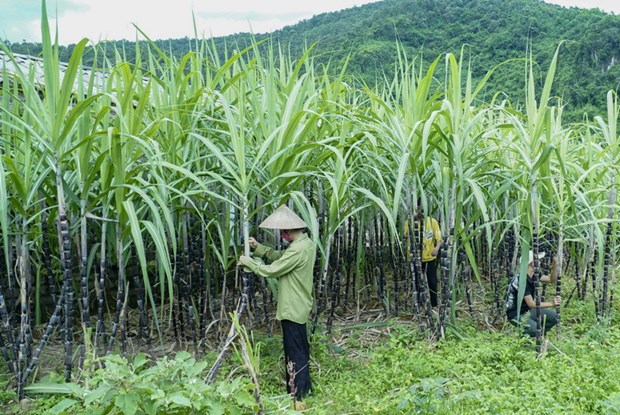Việt Nam for the first time will investigate signs of dumping of sugar imported from Thailand, said the Ministry of Industry and Trade (MoIT) on Monday.

Viet Nam for the first time will investigate signs of dumping of sugar imported from Thailand, said the Ministry of Industry and Trade (MoIT) on Monday.
The ministry on Monday issued Decision No 2466/QD-BCT on initiating an anti-dumping and anti-subsidy investigation for imported sugar from Thailand on the basis of the documents requested by the Viet Nam m Sugar and Sugarcane Association (VSSA) and domestic sugar producers.
According to the ministry, implementing Viet Nam’s commitments in ASEAN related to the application of tariff quotas under the WTO, Viet Nam abolished the sugar import tariff quotas for ASEAN countries from January 1, 2020.
However, in the first eight months of this year, the amount of sugar imported increased dramatically, reaching nearly 950,000 tonnes, a rise of more than six times over the same period last year.
The amount of sugar imported from Thailand to Viet Nam in the period accounted for a large proportion, reaching nearly 860,000 tonnes while that of the corresponding period last year was 145,000 tonnes.
According to representatives of the domestic producers, the increase was the main cause of damage to the local sugar industry, pushing Vietnamese enterprises to lose market share and reducing production output.
The domestic sugar production in the 2019-20 crop was estimated at less than 800,000 tonnes, reducing from 1.2 million tonnes in the 2018-19 crop.
In addition, the industry has provided information and evidence that sugar products imported from Thailand are dumping into Viet Nam and the Thai Government has been maintaining a number of policies supporting sugarcane activities of farmers and the industry.
The MoIT will conduct investigations to establish a fair, competitive environment in the context of international economic integration, protect the legitimate rights and interests of the local industry against the anti-competitive acts.
According to the Law on Foreign Trade Management, the ministry could impose anti-dumping and anti-subsidy tax with retroactive effect on goods subjected to tax for a period of 90 days before applying temporary anti-subsidy and anti-dumping taxes.
MoIT recommended that organisations and individuals in the process of signing contracts for importing, distributing, trading and using goods under investigation should pay attention to the possibility of being subject to temporary anti-dumping and countervailing duties as well as retroactive anti-dumping and countervailing taxes. — VNS





